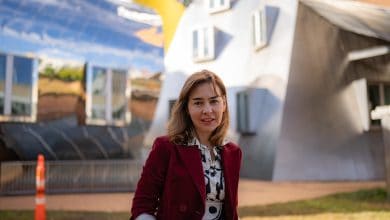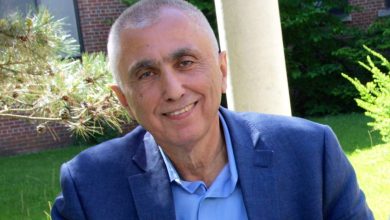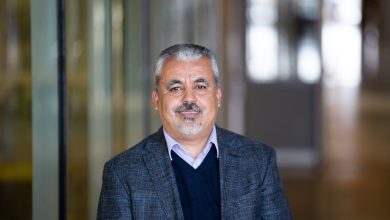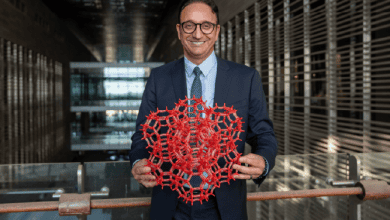Leading the Charge in Monogenic Disease Research
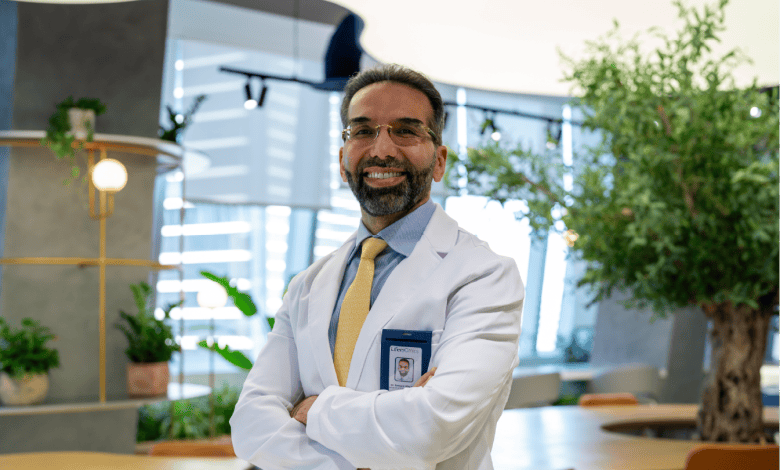
Dr. Fowzan Sami Alkuraya, recipient of the 2022 Kuwait Prize for Basic Sciences from the Kuwait Foundation for the Advancement of Sciences (KFAS), and his team at the Department of Translational Genomics, King Faisal Specialist Hospital and Research Centre, are at the forefront of genetic research, focusing on unravelling the intricate relationship between genes and health conditions. Their primary interest lies in studying monogenic diseases.
Unlike more common diseases such as diabetes and hypertension, which result from a combination of multiple genetic and environmental factors, monogenic (also called Mendelian) diseases can be traced back to a single gene. This should, in theory, make these diseases more tractable. However, Alkuraya notes that we know of fewer than 5,000 culprit genes, leaving potentially many thousands yet to be discovered, given that humans have around 20,000 genes.
Under his leadership, the Alkuraya lab has already identified over 400 novel Mendelian disease genes, sharing their findings in more than 500 published papers
Alkuraya points out that the population structure in the Middle East is ideal for researching Mendelian diseases. Due to high levels of consanguinity (marriage between people who are second cousins or closer), there is homogeneity rather than diversity in the genome map. This resulting “homozygosity” allows certain variants, extremely rare elsewhere, to be present in a unique setting.
On the flip side, the uniqueness of the genetic map makes it difficult to achieve a diagnosis using commercial tests developed by labs elsewhere, as they may not be fully informed of local genetic variants.
Feeling a strong sense of responsibility to serve this patient population, Alkuraya initiated translational genomics projects to make groundbreaking discoveries for the benefit of the Saudi Arabian population and the wider world.
Translational genomics aims to improve human health by building on knowledge obtained through genetic research. Dr. James Lupski, Professor of Human Genetics at Baylor College of Medicine and a long-time associate of Alkuraya, highlights how his combination of interests in developmental biology, molecular biology, and genetics, as well as his clinical training in genetics and early genomics, allowed Dr. Alkuraya not only to establish his own research laboratory but also to lay the foundation for a comprehensive genetics program for global benefit.
Alkuraya seeks to leverage the latest genome technologies, especially as their costs decrease, to benefit the population across the Middle East. After completing his medical education at Harvard, despite the opportunities and resources available in the U.S., he chose to return to his home country, driven by a vision to establish and elevate scientific research standards. He acknowledges that it is easier to conduct research within an established system, but, as he notes, "if everyone were to say that the local environment here is not ideal for research, who is going to change it?" Globally, scientific research is increasingly recognized as a collaborative effort, but when Alkuraya returned to Saudi Arabia in 2007, many academic institutions in the Middle East still held an outdated view of promoting individual research. He immediately set about changing this approach.
Alkuraya believes that the groundwork he is putting in will make it easier for the next generation of scientists to conduct research in the region. He has been instrumental in promoting meritocracy in scientific research to enable competitive, high-quality science to flourish. He says that he is making such a significant effort because he wants his project to be a success story from this part of the world, rather than just another success story from the U.S.
His doors are always open to anyone passionate about learning and collaborating with him. Lama Alabdi, a scientist in the Alkuraya lab, notes that whether it is a master’s student, a doctoral student, or anyone interested in research, Alkuraya works tirelessly with them until their ideas are ready to benefit the scientific community.
Alkuraya is an inspiration to the next generation of researchers. May Alrashed, his doctoral student in 2009, feels that his novel discoveries of diseases and contributions to reducing disease burden are truly inspiring.
Alkuraya has also been keen on integrating research with clinical practice, aiming to benefit both research participants and regular patients. He spends half a day each week doing clinical work. Although the rest of his week is committed to research, his clinical work gives him a unique level of satisfaction. He says that while making discoveries and publishing them is rewarding, direct contact with patients and their families, and communicating results to them, is deeply fulfilling. These encounters constantly remind him of the ultimate purpose behind his work and provide the energy to keep going. He has kept patient records since 2007 and cross-checks them when new discoveries are made to see if any of those patients might benefit.
Alkuraya fell in love with genetics as a student. Most of his classmates thought he was an oddball, as it was the 1990s and the Human Genome Project results were not yet available. However, his passion for genetics has led him to help millions of people live better lives, earning him accolades along the way. With his relentlessly optimistic outlook and forward-thinking approach, he is poised to impact many more in the decades to come.
By Shweta

